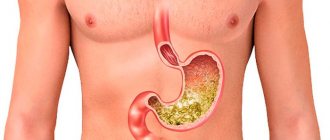The sour taste in the mouth is disturbing and unnerving. Unpleasant taste sensations in the mouth outside of food consumption are a sign of a large number of diseases.
There is such a gastronomic concept as aftertaste. And it is not always pleasant. This is a reaction to stimuli from the taste buds located on the tongue and the inner surface of the cheeks.
A sour taste in the mouth can be the result of using lemon, vinegar, and various marinades for cooking. During the period of not eating food, no foreign tastes should be felt in the oral cavity. If the aftertaste does not go away, or any additional symptoms appear, then the cause of this phenomenon should be identified.
Causes of discomfort
The taste in the mouth tells about the health of the whole body.
The reasons for the appearance of acid in the oral cavity can be both diseases of various organs and a joyful event - the onset of pregnancy.
Possible diseases that cause an unpleasant aftertaste:
- increased acidity of gastric juice;
- excess production of hydrochloric acid;
- disturbances in the gastrointestinal tract - pancreas, reflux disease;
- periodontal diseases;
- the presence of crowns or fillings made of different metals in the oral cavity - such combinations form a galvanic couple and a physical and chemical reaction of electrolysis takes place in the oral cavity;
- electrolyte imbalance;
- dehydration of the body;
- taking medications;
- impaired bile formation and liver pathology - as a result of eating fatty and heavy foods; pregnancy in the middle and late stages - the growing uterus compresses the stomach and hydrochloric acid refluxes into the esophagus and oral cavity.
All these processes are accompanied by additional symptoms. Therefore, if you regularly experience an unpleasant sensation in the oral cavity, you should undergo a comprehensive examination.
If at the same time there is pain in the epigastrium, nausea, and stool disorder, then you need to urgently contact a medical institution.
The following video will familiarize you with the causes of sour taste in the mouth:
Treatment of hepatosis in pregnant women
Treatment of hepatosis is complicated by the fact that almost all medications are contraindicated for pregnant women. Many medications can cause hypoxia and intrauterine growth retardation in the fetus, so the doctor must conduct a full examination of the patient and make sure the diagnosis is correct before deciding on a treatment method. It is very important to understand at what stage the disease is. In the mild stage, you can do without drug intervention by using a special diet. The expectant mother should exclude all heavy, fatty and high-calorie foods from her diet, and also stop taking vitamin complexes and other medications (if their withdrawal does not harm the pregnancy). Drugs designed to optimize liver function are also often prescribed (Hofitol, Essentiale Forte N and others). In many cases, diet is enough to remove toxins from the body and improve the patient's condition.
In more severe stages, the woman is sent to a hospital, where the issue of early delivery is decided. If there is no danger to the fetus, then labor can be delayed by purifying the blood using IVs. They are combined with taking large doses of the above-mentioned drugs and a strict diet. If this technique makes it possible to suppress the disease or at least keep it at the same level of development, and the condition of the fetus does not cause concern, then treatment is continued until 37-38 weeks, and childbirth is planned for this period. If the method does not give the desired result (or if the condition of the fetus worsens, hypoxia is clearly visible), consent to induced labor or Caesarean section is urgently signed. Often the child has a defensive reaction to the unfavorable situation created, and premature birth spontaneously begins. However, you should not rely only on nature. If serious indications arise, it is recommended to start the labor process in advance to minimize the risk of complications.
It is very important that a pregnant woman with severe hepatosis is under constant medical supervision. It is also necessary to carry out extensive blood tests every two days. It often happens that under the influence of IVs, blood counts suddenly drop significantly. Having decided that the disease has subsided, the doctor discharges the patient, and after a couple of days she is again admitted to the hospital with a sharp increase in transaminases.
Take the first step
make an appointment with a doctor!
Acid and sweet
Acidity in the mouth is not a very pleasant sensation
A pure taste sensation is rare. Since there are receptors in the oral cavity for determining and analyzing various combinations.
In a pathological process, acid may predominate, but in most cases other flavors are also present. This provides additional information to find the cause of the unpleasant sensation.
Sweet and sour taste is caused by the following conditions:
- increased blood glucose levels due to stress, physical exertion;
- state of depression;
- excessive consumption of sweets;
- disruption of the gastrointestinal tract;
- liver pathologies;
- toxic effects of pesticides, gaseous chemicals;
- smoking cessation period;
- diabetes with a slight increase in blood glucose levels, a latent form of the disease;
- pathologies of the maxillofacial system, which are accompanied by purulent processes - gum disease, caries, periostitis, gumboils and abscesses.
Before contacting a doctor, you should analyze the factors that contribute to the appearance of a sour taste in the mouth.
Bad breath: physiology or disease?
Bad breath
in medical language it is called
halitosis
. There are physiological and pathological halitosis. Bad breath often appears in the morning. During the night, bacteria and their metabolic products accumulate in the mouth, which causes a bad odor. This type of halitosis is physiological and can be eliminated by simply brushing your teeth. Physiological halitosis also includes odor caused by eating a number of foods, such as garlic, onions, cabbage. This smell will disappear on its own as soon as the substances that caused it are eliminated from the body. But it also happens that an unpleasant odor is not eliminated using hygiene procedures; in this case, most likely, it is of a pathological nature.
Acid and bitterness
A bitter taste indicates a disruption of the liver and bile ducts. It may appear occasionally, but may bother you regularly.
Possible causes of a bitter-sour aftertaste:
- significant errors in nutrition - the liver is simply not able to cope with so many fatty, heavy, spicy foods, alcoholic drinks;
- alcoholism - the liver suffers first;
- treatment with aggressive drugs - a long course of antibiotics, antihistamines, and other medications;
- those who like to smoke a cigarette at night.
If we consider bitterness in the oral cavity in terms of the intended diagnosis, then most often it is cholecystopancreatitis, erosion of the mucous membranes of the stomach and intestines, gastritis.
Consequences of ignoring a dangerous symptom
If the condition when it bakes in the stomach is not diagnosed and treated, the consequences can be the most unpredictable. Untreated gastritis and ulcers can lead to significant damage to the mucous membrane, including perforation of the stomach walls, gastric bleeding, and peritonitis.
In advanced cases, death cannot be ruled out. Constant irritation of the walls of the stomach by excessive release of hydrochloric acid and the reflux of bile into it can eventually lead to the development of an oncological process and the appearance of inoperable tumors.
Metal
The reason may be unhealthy teeth or gums.
A metallic taste in the mouth can be caused by metal crowns or fragments of dentures. In this case, you should discuss with your dentist the issue of replacing them. When making a diagnosis, exclude:
- diseases of the periodontium and maxillofacial system with obvious signs of a purulent process;
- bleeding from the gums;
- poisoning with salts of heavy metals - such taste sensations are caused by mercury, zinc, arsenic, copper;
- diabetes mellitus in the stage of decompensation with a slight change in blood sugar levels;
- Iron-deficiency anemia;
- chronic bleeding due to stomach ulcers;
- hormonal disorders;
- taking certain medications. The appearance of such sensations is facilitated by drugs from the NSAID group and anticonvulsants. When the drug is discontinued, the metallic taste disappears on its own.
Diagnostic methods in Medscan
Diagnosis for hemoptysis includes:
- Taking anamnesis - it is important to establish the history of the symptom and the presence of chronic diseases that could cause it.
- Physical examination - allows you to detect accompanying symptoms.
- Laboratory tests - Abnormalities in blood and urine values may be clinically significant.
- Computed tomography - in Medscan CT allows you to identify inflammatory processes, pulmonary neoplasms, determine their nature, stage of development and the presence of metastases.
- Bronchoscopy - this method makes it possible to assess the condition of the bronchi and take a sample of lung tissue for histological examination. Based on it, the doctor judges the presence of a tumor, its benignity or malignancy.
Acid and milk
Sour taste is common during pregnancy
This is a rare sensation, since in normal conditions it is caused only by the consumption of fermented milk products. When such an aftertaste appears, one can assume:
- chronic stress;
- infection with intestinal parasites;
- various diseases of the gastrointestinal tract.
Outside of food intake, a sour milk taste in the mouth appears along with additional symptoms. This is a reason to contact a medical institution as soon as possible.
Painful attacks during hepatosis
In the most difficult cases of hepatosis, the patient sometimes experiences attacks characterized by severe pain in the right hypochondrium. Often the pain is felt in the abdomen, at the level of the navel and is mistaken for an exacerbation of gastritis. Such attacks may be accompanied by continuous and painful vomiting without relief, headache, tinnitus, rapid heartbeat, darkening of the eyes and shortness of breath. They are very similar to severe poisoning syndrome, only in this case the stool practically does not change, and the food eaten is vomited.
Most often, such attacks are caused by eating harmful foods (fried, spicy, fatty, alcohol) and begin 40-60 minutes after eating or by a sudden movement, for example, a quick turn, bend or fall. Painful attacks can last up to 20-40 minutes, they begin suddenly and recede just as sharply. Often after an attack, quite severe residual pain remains in the right hypochondrium for several days. A big mistake during such attacks is taking paracetamol, because it only aggravates the situation, negatively affecting liver activity. It is allowed to take antispasmodic drugs such as No-Shpa.
Take the first step
make an appointment with a doctor!
Sour taste in pregnant women
The appearance of such an unpleasant aftertaste in a pregnant woman is facilitated by 2 metabolic processes associated with the process of bearing offspring.
You can thank for the acid in your mouth:
- The hormone progesterone. This is a necessary condition for pregnancy. This substance helps relax muscle tissue, preventing the development of fetal rejection. Ideally, it should act only on the muscles of the uterus. But in reality, all smooth muscles relax, including the muscles of the stomach and esophagus.
- The growing uterus puts pressure on the hollow organs. There is a reflux of stomach contents into the esophagus and oral cavity. The result is heartburn and an acidic taste in the mouth.
In this case, taking an antacid is indicated at the discretion of the gynecologist. But first you should exclude diseases of the gastrointestinal tract. The drug of choice can be Gaviscon in any convenient form.
Treatment methods in Medscan
The choice of treatment methods depends on the disease that caused hemoptysis and the stage of its development. For malignant neoplasms in the lungs, the following are prescribed:
- early resection;
- chemotherapy;
- radiation therapy;
- immunotherapy;
- targeted therapy;
- stereotactic radiotherapy.
In case of massive bleeding, Medscan specialists perform embolization of the bronchial artery. This is a minimally invasive method that involves blocking a bleeding vessel. It allows you to stop blood loss in 90% of cases. If there is no effect, emergency surgery is performed.










